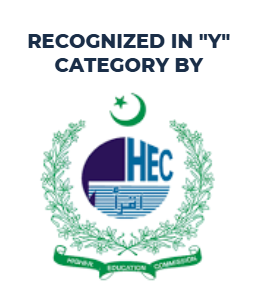
Vol. 1 No. 2 (2023): UCP Journal of Law and Legal Education

University of Central Punjab Journal of Law and Legal Education (UCP-JLLE) fundamentally focuses on the promotion of constant dialogue and academic research. It is devoted to solicit and publish the views of legal academics and professionals on contemporary issues regarding law and legal education. We are delighted to present the second issue of Volume One of UCP-JLLE.
The current issue includes five articles addressing questions from the areas of law and legal education. The first article is authored by Rana Rizwan Hussain. Hussain explores case laws from Pakistan to determine the features and sources of public policy and the principles developed thereupon. The author deduces that a foreign award questioning a principle of public policy may face trouble in seeking enforcement in Pakistan. In the second article, Mehboob Usman and others present an elaborate review of the recommendations of the Council of Islamic Ideology on family laws. The authors highlight the need to follow the Council’s recommendations in letter and spirit to bring family laws in consonance with the injunctions of Islam. The last three articles address exigent issues in the field of legal education. Ainul Jaria BT. Maidin accentuates the significance of clinical legal education for the practical training of law students in the background of the challenges and prospects of introducing clinical legal education programmes. The author views the paradigm shift from the traditional pedagogy as imperative and concludes that teaching, learning and research in legal education can only develop through clinical programmes. In the next article, Sardar Shah and others survey law students’ perceptions of legal education in Pakistan to spotlight the strengths and weaknesses of the current education system and forward recommendations. The last article by Stephen Rosenbaum discusses the role of law students in filling the gap in access to justice and legal aid for the poor and destitute Pakistanis. Against that backdrop, the article proposes to introduce the ‘student practice rule’ as an important component of clinical legal education and suggests collaboration between the Bar, Judiciary and academia for more productive application and implementation of the rule.
We are thankful to the authors for their contributions to the second issue and appreciate the patience they showed through the strenuous review process. In the end, this issue could not have been possible without the reviewers' investment of time and energy. Finally, We extend our heartfelt gratitude to all members of the Advisory Board for their consistent guidance.


